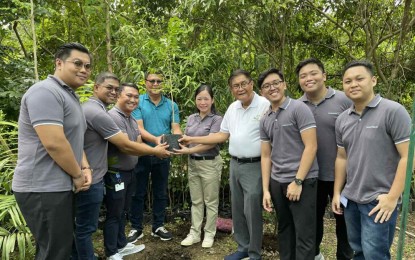First Philippine Industrial Park is developing a river water treatment facility as a flagship project under its P4-billion integrated water management master plan, to secure a sustainable water supply for its ecozone locators while reducing dependence on groundwater extraction.
The facility, now under construction within FPIP’s 600-hectare ecozone in Santo Tomas and Tanauan, Batangas, will draw water from the San Juan River, one of the 21 tributaries of Laguna de Bay, rather than tapping underground aquifers.
Once completed in November 2025, it will have the capacity to treat up to 20 million liters per day (MLD), more than enough to serve FPIP’s 150 locators and over 80,000 employees.
The president of FPIP Utilities, Jeremaine Esguerra, said the project underscores the urgent need for alternatives to groundwater extraction, which has already caused land subsidence, saltwater intrusion, and the depletion of freshwater supplies in many parts of the country.
“Groundwater extraction has long been convenient, but it is no longer sustainable. The river water treatment facility is our way of addressing this pressing challenge while advancing FPIP’s commitment to regeneration and decarbonization,” Esguerra said at a recent Manila forum organized by the Philippine Economic Zone Authority, the United Nations Development Programme Philippines, and FutureWater Asia.
Esguerra explained that the river water treatment facility is an essential segment of the company’s long-term strategies for water sustainability across the ecozone.
“FPIP’s river water treatment facility is a testament to our resolve to be an environmentally responsible organization. It is a key step in our sustainability roadmap and our commitment to regeneration and decarbonization in support of the Lopez Group’s mission,” Esguerra said.
She warned that unchecked groundwater over extraction could lead to land subsidence, saltwater intrusion that contaminates drinking water, and reduced surface water supply for irrigation—hurting both industries and farmers.
Other initiatives under FPIP’s P4-billion master plan include integrating solar power into FUI’s water operations to cut carbon emissions, converting invasive water hyacinths into biodegradable materials for water remediation, and promoting rainwater reuse to help ease pressure on freshwater resources.
First Balfour, the Lopez Group’s construction arm, is building the facility.





